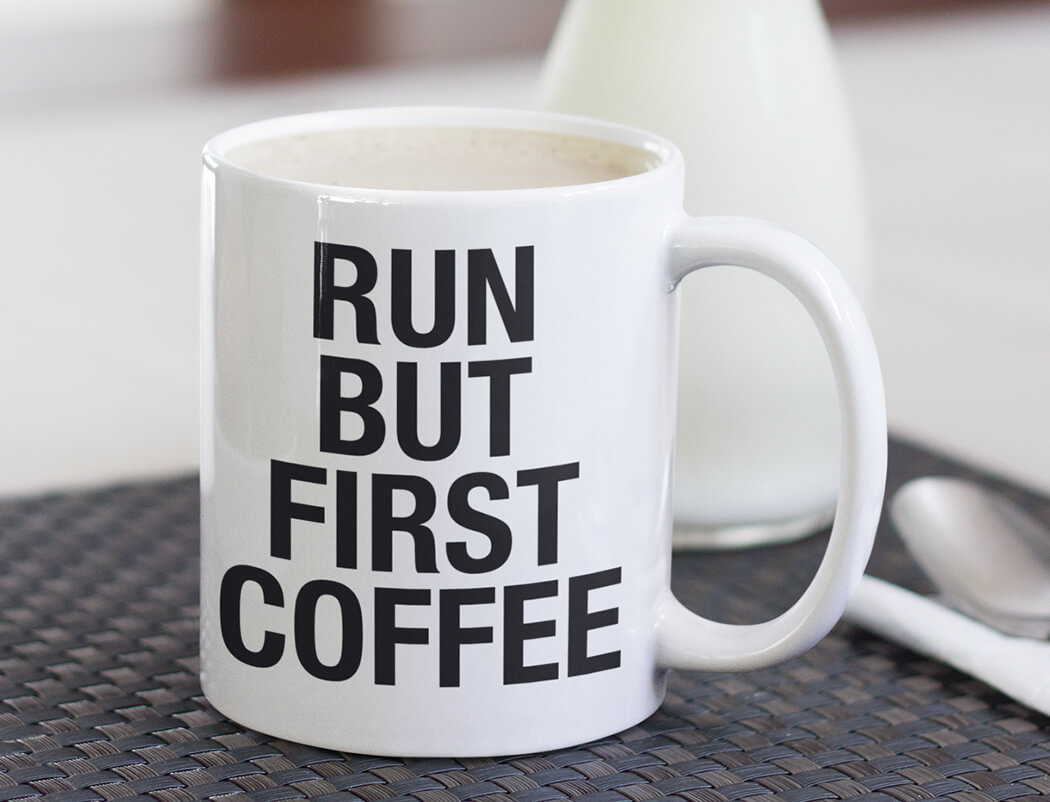
Its A Fact, Black Coffee And Green Tea Helps Burns Fat
If you’re a runner and a coffee lover like me, then I think you’re gonna enjoy this article. The fact is, caffeine improves the body’s ability to burn fat, sparing glucose for later in a race or workout when it’s most needed. Caffeine releases calcium into the muscles, increasing their power output and enabling you to race longer and faster. As recreational athletes we all want to be toned and always a little leaner and drinking black coffee or green tea has an element called chlorogenic acid, which is known to speed up weight loss. When you consume black coffee, the presence of chlorogenic acid slows down the production of glucose in the body. This means the production of new fat cells is lowered, which leaves fewer calories in the body to be stored.
The Science In Brief
To keep it brief, caffeine increases lipase, an enzyme that helps break down fat during digestion. It is the synergetic combination of caffeine and chlorogenic acid working together that makes coffee a great fat burning drug of choice. Caffeine stimulates the nervous system, which sends direct signals to the fat cells, telling them to break down fat. This is particularly great post-workout, for more rapid breakdowns. However, taking a dose of caffeine 30 to 60 minutes pre-workout before aerobic type exercise also increases fat oxidation actually during exercise regardless of the time of day. Just to add to this, If you consume black coffee after dinner, the presence of chlorogenic acid slows down the production of glucose in the body which again will stop the blood sugar spike and inhibit the body from going into fat storage mode.
In a study, Caffeine has been shown to increase fat burning by as much as 15 to 25%

How Much Coffee Should You Drink To Burn Fat?
It’s the age old question and believe me its taken many doses of coffee to get to the right amount. To receive the health benefits of coffee and achieve weight loss, I would recommend drinking no more than four 200ml cups of coffee a day, which equates to about 400mg of caffeine. If you want to go really healthy and speed up the fat burn effect you can add the juice of half a lemon to your cup of coffee along with a dash of cinnamon. This can really help in kick-starting and boosting the fat burning process. This drink also helps in flushing out toxins from the body and helps in accelerating the metabolic rate.
Remember If The Furnace Is Hot Enough, You’ll Burn Anything
Coffee And Running Performance

So why would you drink coffee before a run? Well, coffee (or any form of caffeine) can increase your energy and reduce feelings of perceived exertion and discomfort. Many long-distance runners and endurance athletes use caffeine supplements on race days to boost their performance and run further without fatigue. It’s a simple fact that consuming coffee and caffeinated beverages helps you to run faster. Sports drinks can also enhance running performance, as they provide water, electrolytes, and carbohydrates to boost performance and aid in recovery, however they do contain an awful lot of sugar so I tend to steer clear.
Studies have shown that there is a link between athletic performance, fitness and caffeine intake prior to workout.
How To Take Your Coffee For Maximum Effect
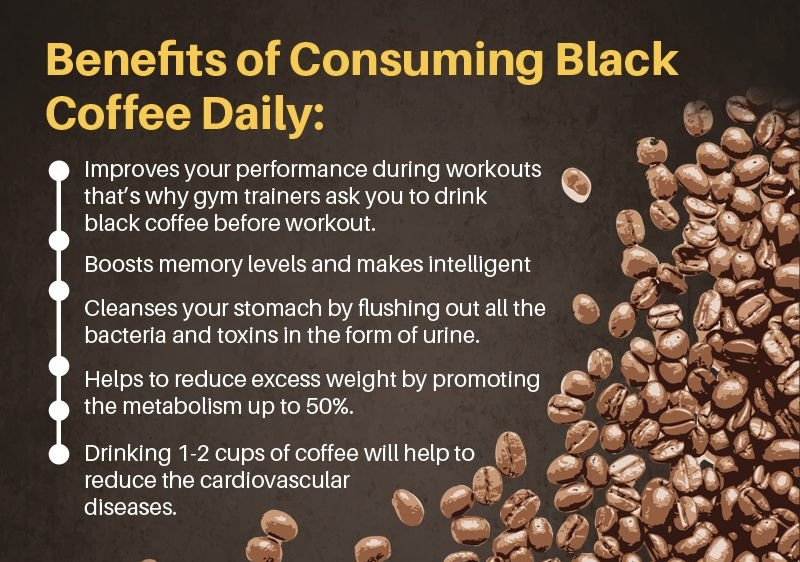
I heavily promote that black coffee is the only way to take your coffee as a runner. Adding milk and sugar to your coffee changes the nutritional balance and the effects on the body which means you have come out of fat burning mode. I recommend about 400 mg or less per day is best for athletes because levels greater than 500 mg per day can become addicting and negative side effects like the jitters and frequent bathroom trips for the trots can start to happen.
It’s a simple fact that consuming coffee and caffeinated beverages helps you to run faster and further without fatigue
Benefits Of Runners Drinking Coffee
The main benefits for runners, is that it Increases speed and improves your power. Caffeine also enhances reaction time and improves neuromuscular coordination (how fast your brain can send a signal to your muscles to contract and relax). While this is great for 200 meter sprinters, it can also be beneficial to long distance runners. Downing a Coffee before a run improves performance all round. Hundreds of studies have shown that consuming caffeine before a physical challenge likely helps subjects go farther and faster than when they go without it. This effect holds true in studies of both endurance athletes and sprinters.

The main reason caffeine is consumed is because of its ability to boost energy. It works to stimulate your central nervous system, so that you are able to perform more efficiently. Caffeine has an ergogenic effect, which means that it enhances physical performance, stamina, and recovery
Can Athletes Drink Coffee Everyday And Still Get The Benefits?
Its a good question but as with anything that you become used to the research indicates that regular caffeine intake may hamper the performance-enhancing benefits of the drug in time. With this in mind, I would recommend that athletes who drink coffee regularly should cut down in the lead-up to a sports performance as it could hamper the caffeine’s performance-enhancing benefits when you need it most.
Coffee The Legal Performance Enhancer?

Many athletes use caffeine as a legal performance enhancer, as the benefits it provides, both physically and cognitively outweigh the disadvantages. The benefits caffeine provides influences the performance of both endurance athletes and anaerobic athletes. A report says three-quarters of elite athletes take caffeine. Studies have shown that caffeine can give a 1 to 3 percent or more boost in athletic performance which could be the difference between a personal best or not.
Coffee And Timing

What Is The Best Time To Drink Black Coffee For Performance And Weight Loss?
It’s been suggested that the best time to drink coffee is mid- to late-morning when your cortisol level is lower (see infographic below). For most people who get up around 6:30 a.m., this time is between 9:30 and 11:30 a.m. The effects of caffeine usually start within 5 to 30 minutes and can last from 8 to 12 hours. 1 or 2 cups of coffee in the morning can make you more alert, put you in a better mood, and make you feel less tired. It can also improve physical work and get your brain thinking with more clarity.

If you’re looking to optimise coffee’s beneficial effects on exercise performance, it’s best to consume the beverage 30–60 minutes before a workout or sporting event. This is the time it takes caffeine levels to peak in your body. You can drink coffee an hour or more before the run and still enjoy the benefits of caffeine. The effects of caffeine for performance last for three to five hours, so you don’t have to try to drink it immediately before your run.
What Happens If I Drink Coffee After Workout?
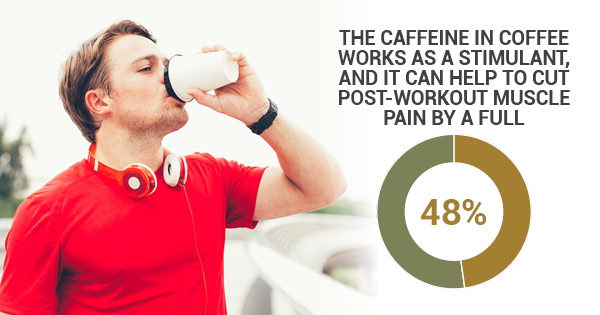
Drinking coffee after a workout can help refuel muscles and recover quickly from rigorous exercising. Glycogen, the muscle’s primary fuel source during exercise, is replenished more rapidly when athletes ingest both carbohydrate and caffeine after rigorous exercise, thus improving their performance.
What To Add To Coffee To Make It Burn Fat?
Ok, if thats not enough convincing to have a morning cup of black coffee, here’s how you can boost its fat burning ability. If you add cinnamon to your morning cup, it can help reduce hyperglycaemia, increase fat burning, and decrease inflammation . All of these are incredibly beneficial to speed up your metabolism and help with weight loss. Cinnamon is a great addition to any herbal, green, or black tea, as well as coffee. If you don’t like cinnamon then just drink it black.
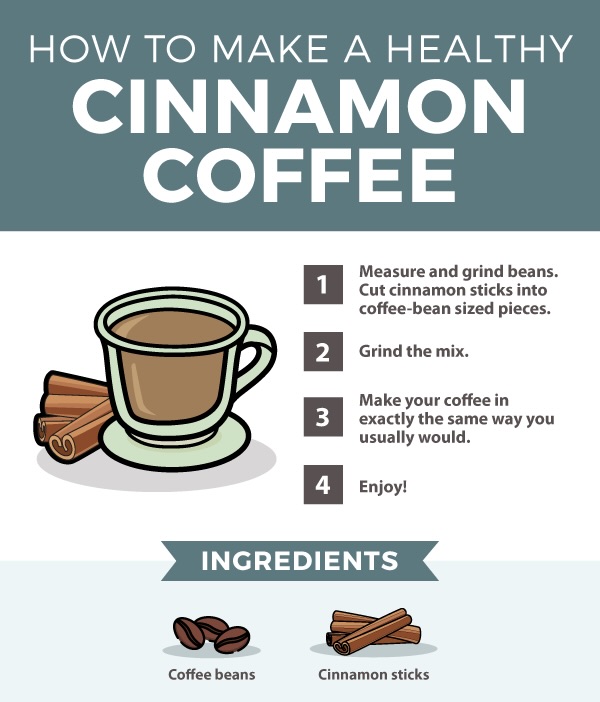
Does Coffee Count As Water Intake? Yes Absolutely.
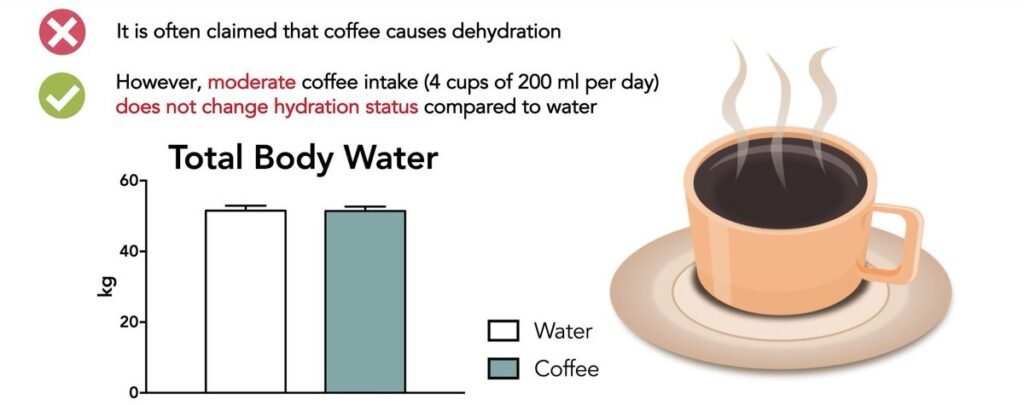
Here is one more reason to enjoy that morning cup of Coffee. Despite what some people say, your coffee DOES count toward your daily water intake. The water in coffee, tea and other caffeinated beverages helps us meet our daily fluid needs and is a lot less boring.
The Takeaway

So there we have it folks. Coffee is a popular beverage that researchers have studied extensively for its many health benefits, including its ability to increase energy levels, promote weight management, enhance athletic performance, and protect against chronic disease. Always keep in mind that some people may need to limit their intake, including people who are pregnant or breastfeeding, children and adolescents, and people with certain health conditions. Still, drinking coffee in moderation, about three to four cups per day, has been associated with several health benefits and is generally considered safe for most adults
